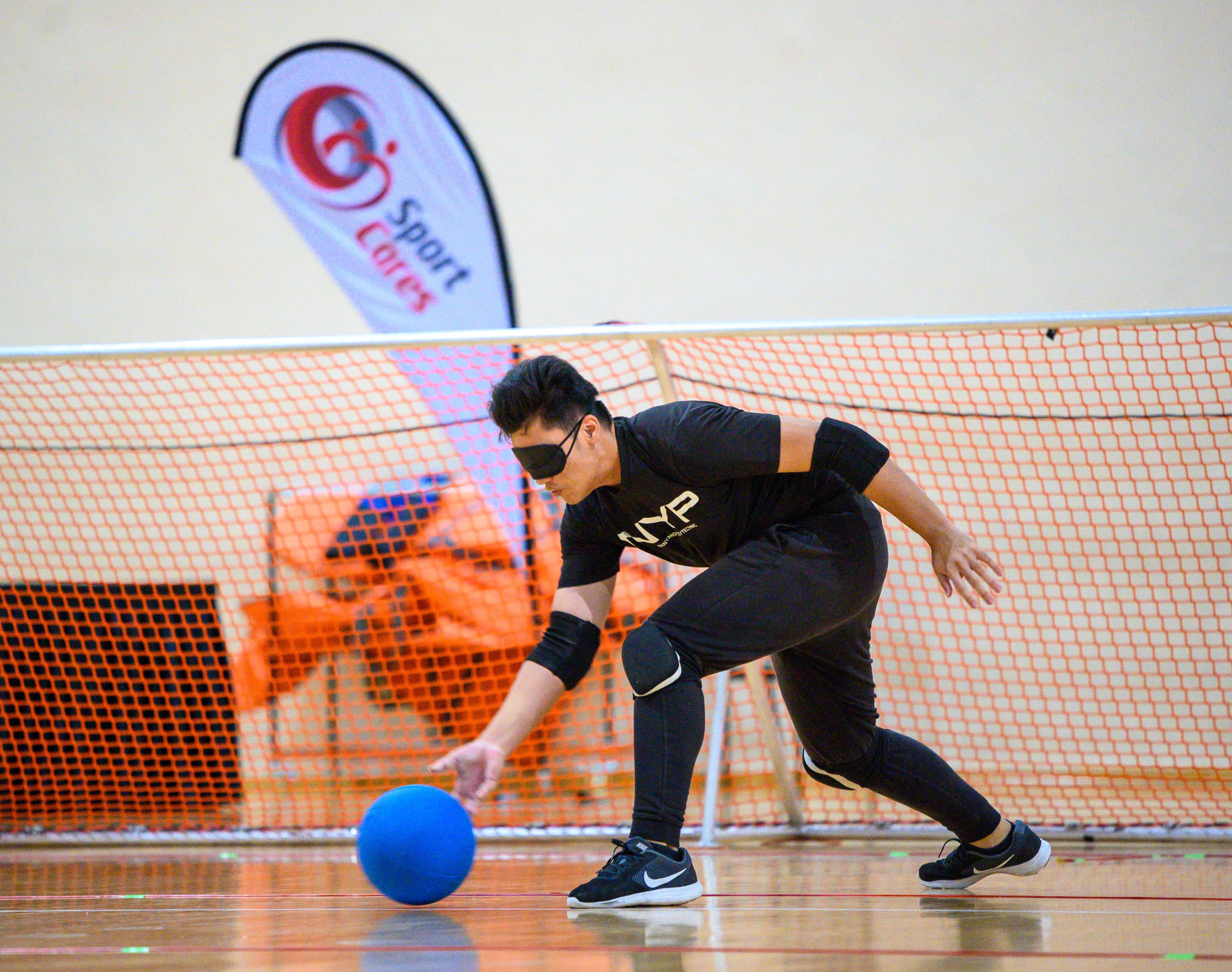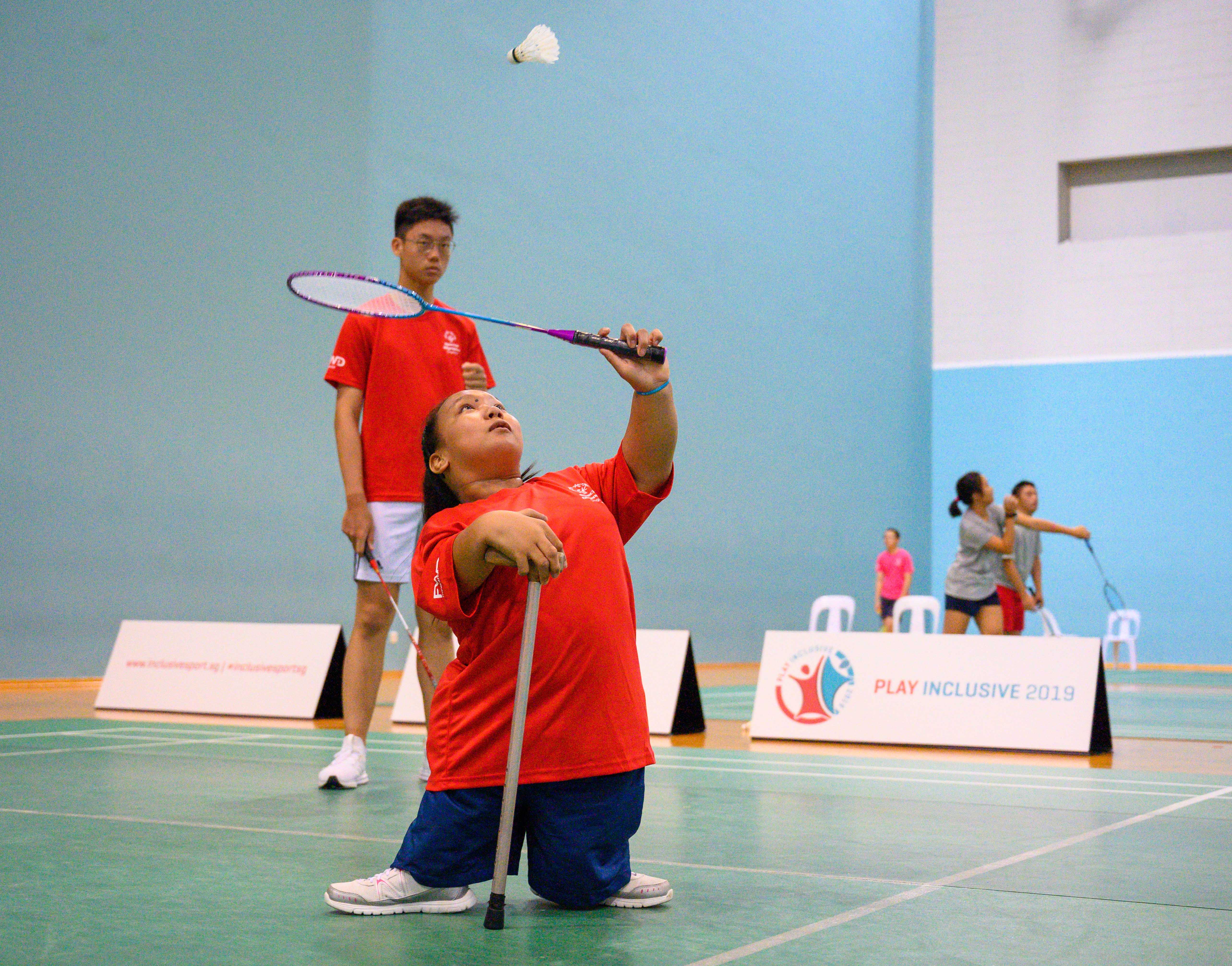Play Inclusive 2019

Play Inclusive, Singapore’s largest unified sports competition for persons with and without disabilities, returned for a second year with the addition of goalball, a sport for persons with visual impairment, expanding the participating disability types to include both intellectual and visual disability. More than 700 participants teamed up as unified teams to compete in badminton, basketball, football, floorball and goalball.
Minister in the Prime Minister’s Office and Second Minister for Finance and Education, Ms Indranee Rajah, opened the Games at the Singapore Sports Hub’s OCBC Arena this morning, emphasised the importance of embracing diversity within the community.
The event, co-organised by Special Olympics Singapore and SportCares – the philanthropic arm of Sport Singapore (SportSG), and supported by the Ministry of Education (MOE), is part of an initiative where students with and without intellectual disabilities or visual impairment train and play together in unified teams to build friendships through shared sporting experiences.
“Play Inclusive engages the community to enjoy sport together while building meaningful friendships. It creates better understanding and appreciation of one another. We are thankful for our volunteers who have been invaluable in assisting the coaches and serving as training partners. The partnership between Special Olympics Singapore, MOE, and SportSG contributes to the efforts to make Singapore a more inclusive nation. We welcome more partners to join us on this journey,” said SportCares Director, Mr Kerk Kim Por.

Play Inclusive was first introduced in 2018 as Singapore’s largest multi-sport unified tournament. Besides the addition of a new disability group (visual impairment), the original participant group – teams comprising persons with and without intellectual disabilities – has grown from 450 to 760.
Part of the growth may be attributed to the addition of a Skills Challenge component in the floorball and basketball segments. The Skills Challenge allows participants who are not yet proficient enough in their respective sports to compete in teams to participate in a points-based event. Points are accumulated based on how well different sporting skills are performed.
Dr Teo-Koh Sock Miang, President of Special Olympics Singapore, shared her thoughts on the partnership as well as the expansion of the competition scale. “Special Olympics Singapore is very pleased to partner MOE & SportSG again this year in hosting Play Inclusive 2019. We are happy and encouraged to see an increase in the number of special athletes and unified partners participating this year. Our unified partners from different organisations have shown us that Singaporeans do believe that everyone in Singapore, with and without special needs, should be able to participate actively in, and enjoy, sports as equals on the same team. We celebrate the diverse sporting talents that participants bring to 2019 Play Inclusive and invite everyone to come and support the athletes.”
The addition of Goalball has also expanded the inclusivity of the competition. Sharing on how training sessions helped to build relationships, Goalball coach Hansen Bay said, “Over the past two months, not only are my players training together with the sighted participants on court, but they are even starting to hang out together socially. For me, this is what matters and this is what it means to be inclusive – meaningful interaction among persons of all abilities, and Play Inclusive provides a context to foster this!”
In unified competitions, athletes with intellectual disabilities are teamed up with unified partners (who are persons without special needs). A process called “divisioning”, where athletes are assessed for their playing abilities and then placed in a division where the athletes’ skills are similar, is used to ensure quality participation for the athletes. The presence of unified partners in each team is to encourage and facilitate meaningful gameplay, and there are rules in place to ensure unified partners do not dominate the game, but rather, assist their teammates to play to the best of their abilities.
As with any other team sports, to better understand each other’s strength and weakness, teams had to train together in their respective sports for at least 8 weeks leading up to the competition. This interaction allowed the teams to learn to play together by understanding their teammates.
Changkat Primary School and Metta School were among partner schools participating in badminton. 11-year-old Muhammad Arif Ruzainee bin Mohamed Taufeek, from Changkat Primary School, was full of anticipation for the event, “I look forward to meeting students from other schools, and also learning more about sportsmanship.” Echoing his enthusiasm, 13-year-old Nabil Qusyairi bin Adi Hasri, from Metta School, said, “I’ve learnt to be more appreciative of my team mates and I hope to lead my team to victory.

